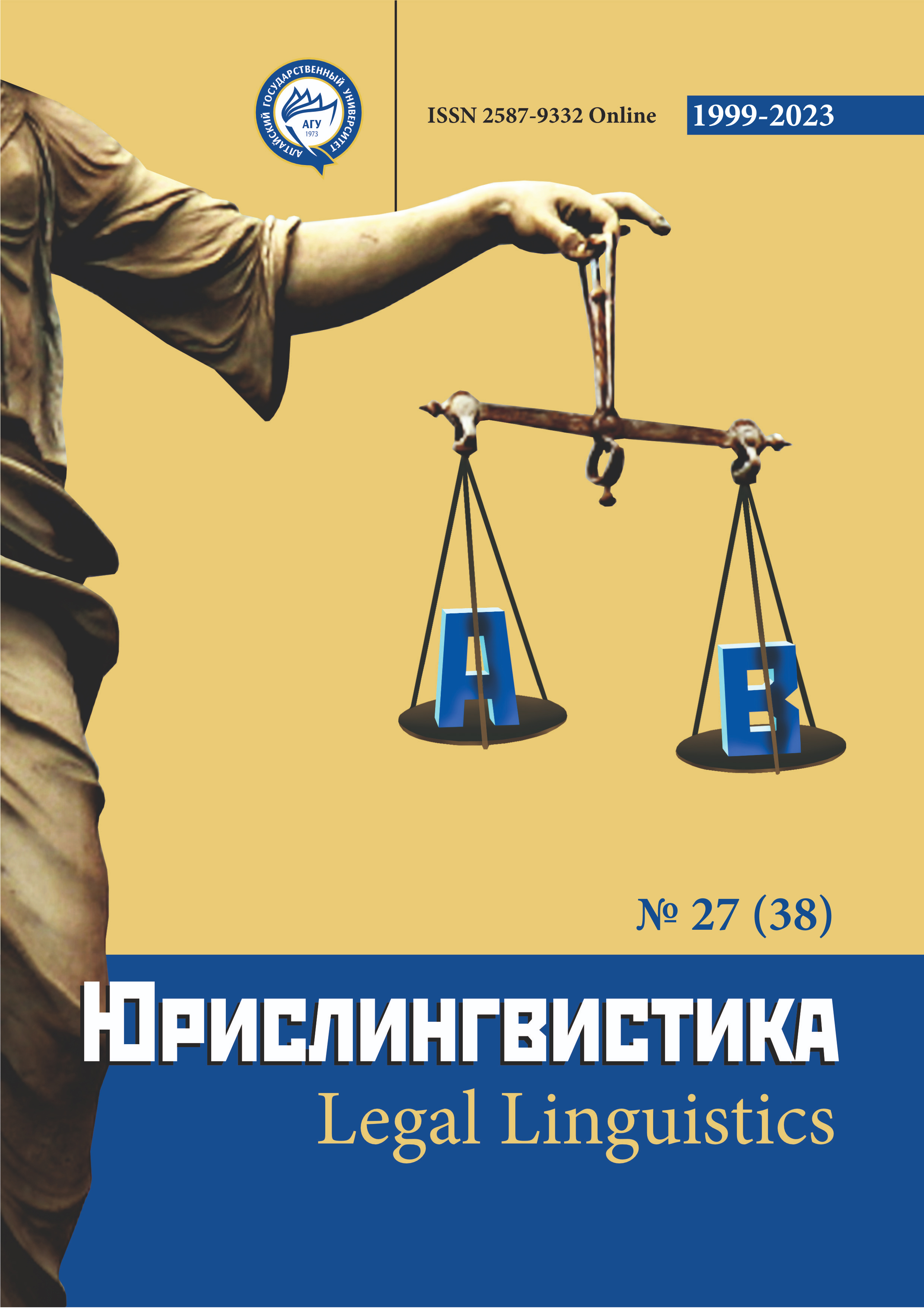Issues of Interpretation of the Special Part of the Criminal Law
УДК 343.3/.7 ББК 67.408.1
Abstract
The article examines some issues of interpretation of the provisions of the Special Part of the Russian criminal law. Some debatable issues related to the subject of interpretation and the limits of the interpretation of the criminal law are outlined. It is indicated that the opinion about whether the judiciary can interpret the law, or only the legislator has such a right, is currently not popular. Most researchers believe that the judiciary has the right to interpret the criminal law. Attention is drawn to some types of interpretation. The issues of judicial interpretation of the Special Part of the Criminal Law are considered in more detail. Scientific works propose to consider two options for interpreting the criminal law: clarifications on a specific case and clarifications contained in the resolutions of the Plenum of the Supreme Court of the Russian Federation. The author comes to the conclusion that the resolutions on specific cases adopted by the Supreme Court of the Russian Federation most often precede the interpretation that will be contained in the resolutions of the Plenum of the Supreme Court of the Russian Federation, they set the vector for understanding the law, contribute to uniformity in understanding the provisions of the Special Part of the Criminal Law. Some limits of judicial interpretation of the Special Part of Criminal Law are named. In the judicial interpretation of the provisions of the Special Part of the Criminal Law the structure of the corpus delicti must not be changed. Criminal law is most often established to be valid for a long time. In the event of a significant change in social relations, it is the legislator that must decide to amend the article, recognizing it as invalid, rather than the court must define as criminal some acts which are not stipulated as such by the legislator in the Special Part of the Criminal Law.
Downloads
Metrics
References
Бюллетень Верховного Суда Российской Федерации. 2021. № 5. С. 27.
Бюллетень Верховного Суда Российской Федерации. 2022. № 7. С.11-12.
Бюллетень Верховного Суда Российской Федерации. 2022. № 8. С.22-23.
Иванчин А.В. Законодательная техника и ее роль в российском уголовном правотворчества. М., 2011.
Ковалев М.И. Советское уголовное право. Курс лекций. Выпуск 2. Советский уголовный закон. Свердловск, 1974.
Copyright (c) 2023 Диана Голенко

This work is licensed under a Creative Commons Attribution 4.0 International License.
The authors, which are published in this journal, agree to the following conditions:
1. Authors retain the copyright to the work and transfer to the journal the right of the first publication along with the work, at the same time licensing it under the terms of the Creative Commons Attribution License, which allows others to distribute this work with the obligatory indication of the authorship of this work and a link to the original publication in this journal .
2. The authors retain the right to enter into separate, additional contractual agreements for the non-exclusive distribution of the version of the work published by this journal (for example, to place it in the university depository or to publish it in a book), with reference to the original publication in this journal.
3. Authors are allowed to post their work on the Internet (for example, in a university repository or on their personal website) before and during the review process of this journal, as this may lead to a productive discussion, as well as more links to this published work (See The Effect of Open Access).











